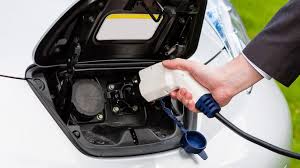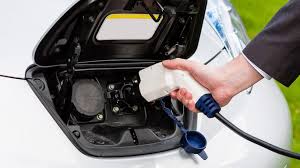
Owners and drivers of electric vehicles in the United Kingdom are taking the very dangerous option of getting their vehicles charged at home because of a shortage of public charging infrastructure in the country, claimed an electrical safety charity.
The report, based on a survey called Electric Safety First, said that 75 per cent of the respondents who were in the habit of charging their vehicles from their home mains supply with the help of a domestic extension lead also acknowledged that they indulged in the risky “daisy-chaining” which is the act of using more than one extension leads that are joint to each other, so tat the power chord could reach the vehicles,
The UK government should expand the national network of public charging points, urged the organization since the study by the organization found that the number of charging points were being outpaced by the growth rate of licensed plug-in vehicles in the country.
Over the last five years, the rate of growth of licensed plug-in vehicles is has been almost six time more than that of public charging-point locations in the UK, found the study from an analysis of the data from the Department for Transport (DfT) and Zap-Map.
The survey was conducted on 1,500 electric vehicle owners – which included both all-electric and hybrids. The report found that almost three fourth of the respondents complained of a shortage of public charging points close to their homes which had forced them to use domestic multi-socket extension leads – which are not safe to be used outdoor, for charging of their cars.
This risky act was undertaken by the owners despite their knowledge of the risks involved in using it outdoors. The survey also found that nearly 50 per cent of the respondents who used an extension lead at home to charge their electric vehicles also said that the extensions were left running even in the rain.
And despite advice that daisy-chaining should be avoided under all circumstances due to the risk of electrocution and fire, almost 75 per cent of those who charge with a domestic extension lead said they did it.
According to the latest figures, the number of charging point locations ranges from 147 per 100km2 in London (and 2.6 per 10,000 residents) to 1.55 per 100km2(1.03 per 10,000 residents) in Wales.
The UK government, along with a number of other governments worldwide, have been stressing on the greater use of electric vehicles to pout a curb on emission pollution. The UK government wants to have all cars in the country at zero emission levels by 2040.
“Drivers should be able to charge their electric vehicles on a network that is accessible, reliable, affordable and safe, and almost 1,000 public connectors have been installed in the last 30 days alone,” said a DfT spokesperson.
“Nearly 120,000 charge points have been installed across the UK to date and we are continuing to accelerate the growth of infrastructure through a range of initiatives, including up to £500 off the upfront cost of residential installations,” the spokesperson added.
(Source:www.theguardian.com)
The report, based on a survey called Electric Safety First, said that 75 per cent of the respondents who were in the habit of charging their vehicles from their home mains supply with the help of a domestic extension lead also acknowledged that they indulged in the risky “daisy-chaining” which is the act of using more than one extension leads that are joint to each other, so tat the power chord could reach the vehicles,
The UK government should expand the national network of public charging points, urged the organization since the study by the organization found that the number of charging points were being outpaced by the growth rate of licensed plug-in vehicles in the country.
Over the last five years, the rate of growth of licensed plug-in vehicles is has been almost six time more than that of public charging-point locations in the UK, found the study from an analysis of the data from the Department for Transport (DfT) and Zap-Map.
The survey was conducted on 1,500 electric vehicle owners – which included both all-electric and hybrids. The report found that almost three fourth of the respondents complained of a shortage of public charging points close to their homes which had forced them to use domestic multi-socket extension leads – which are not safe to be used outdoor, for charging of their cars.
This risky act was undertaken by the owners despite their knowledge of the risks involved in using it outdoors. The survey also found that nearly 50 per cent of the respondents who used an extension lead at home to charge their electric vehicles also said that the extensions were left running even in the rain.
And despite advice that daisy-chaining should be avoided under all circumstances due to the risk of electrocution and fire, almost 75 per cent of those who charge with a domestic extension lead said they did it.
According to the latest figures, the number of charging point locations ranges from 147 per 100km2 in London (and 2.6 per 10,000 residents) to 1.55 per 100km2(1.03 per 10,000 residents) in Wales.
The UK government, along with a number of other governments worldwide, have been stressing on the greater use of electric vehicles to pout a curb on emission pollution. The UK government wants to have all cars in the country at zero emission levels by 2040.
“Drivers should be able to charge their electric vehicles on a network that is accessible, reliable, affordable and safe, and almost 1,000 public connectors have been installed in the last 30 days alone,” said a DfT spokesperson.
“Nearly 120,000 charge points have been installed across the UK to date and we are continuing to accelerate the growth of infrastructure through a range of initiatives, including up to £500 off the upfront cost of residential installations,” the spokesperson added.
(Source:www.theguardian.com)














